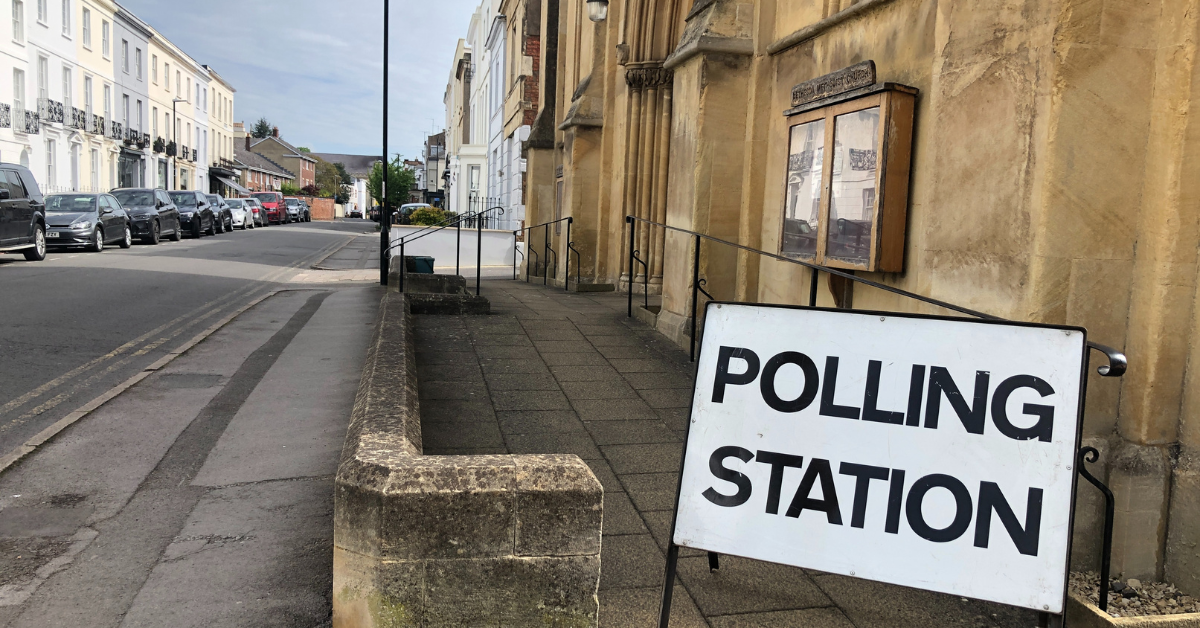Our friends at Future Ed and 50CAN published their latest Advocacy Labs report titled, “Can Elections Help Advance Your Education Advocacy Goals?”
If you run an organization (even a small grassroots operation) dedicated to improving education systems and expanding opportunities for children (and you’re not restricted from lobbying!), this report can open up possibilities for making real change.
The report pulls together “key questions advocates ask when considering how they can build more political clout to promote improvements in education,” and answers those questions from a research basis and from the perspective of advocates who’ve been doing the work.
Ultimately the report argues that, despite its difficulties, electoral advocacy is a crucial part of education advocacy and that combining election work with traditional advocacy strategies like community organizing, storytelling, and lobbying leads to a significant increase in policy campaign success rates.
It found that their policy campaigns’ win rate jumped from 44% to 65% when electoral advocacy was part of their advocacy plan.
The questions and a tight summary of the answers are below, but you should really check out the full report if you want to dig deeper.
Do campaigns matter?
Research suggests electoral work can make a difference, but often falls short of its potential. The more personal tactics the better.
Advocates say be careful not to spread yourself too thin and be thoughtful about where you focus your efforts.
Research says it’s complicated, but ultimately they do matter in a variety of ways. The question is not whether campaigns matter, but where, when, for what, and for whom they matter. Don’t waste your time trying to influence an election if weighty fundamentals like the economy are pointing strongly in one direction. In close races, your campaign tactics (whether carried out by you or your allies) can be the difference between winning and losing. Personal tactics for the win: organizing volunteers for door-to-door canvassing and personal canvassing offer the biggest ROI.
Does campaign spending matter?
It matters most if you’ve done your homework and point your money at the races that have the best chances of tipping in your favor. Polls are your friend.
Advocates say spending through an independent expenditure campaign is one of the best ways to advance public support for your cause.
Research says that the amount of money an incumbent spends on their campaign has no connection to whether they win re-election. However, a field experiment found that additional spending on behalf of challengers works and is highly effective. Incumbents should focus on shoring up votes rather than seeking a broad expansion of support.
What does electoral spending buy?
It buys support for your elected champions and the opportunity to make your case with them.
Advocates say it’s not magic, you still have to put in the hard work of advocacy, but with patience and consistency in supporting those who support your cause, you can see real change.
Research says money doesn’t always buy results, but it can buy access, which gives you the opportunity to make your case to a potential decision maker.
Do campaign policy promises matter?
Public commitments not only help bind candidates to your cause but can also shift public opinion in your favor. So, yes, getting candidates to make public commitments in support of your policy priorities is a great tactic.
Advocates say don’t be afraid to ask candidates to be out in front on your issues, being with you privately is not enough to depend on.
Research says elected officials can shape constituent opinion by simply staking out a position on issues, no lengthy arguments needed. And you have a better chance of persuading the candidate to your position if you can show them another leader of their same political party who adopted the position somewhere else. Finally, academic research is perceived as more credible than research from think tanks or advocacy organizations, regardless of content.
Does fact-checking an election work?
Yes, under two conditions: First the facts are on your side. Second, politicians know someone’s going to hold them accountable to the facts.
Advocates say tracking statements, researching their ‘truthiness,’ and reporting findings is hard and thankless work, but it’s effective.
Research says candidates who got a letter warning them about risks to their reputation and reelection chances if they were caught making false statements made significantly fewer false statements. Be proactive.
How should advocates recruit candidates?
Don’t be shy about it. Recruit candidates early, be encouraging, and keep them well informed about the issues at stake.
Advocates say there’s nothing more powerful than finding people who share your vision and helping them succeed in an election.
Research says encouraging people to consider running for office can make a difference. Telling someone something encouraging like, “you’d be a great elected official” worked twice as well as telling them they’d have political support if they ran.
Can you persuade the public to vote on your cause?
Elected officials are sensitive to their constituents’ changing beliefs and attitudes and the best way to change the hearts and minds of the masses is through storytelling.
Advocates say emotional, relatable stories let our brains humanize and contextualize complicated issues.
Research says changing public opinion is hard, but sharing narratives open people to fresh perspectives, especially when someone from the “in-group” is sharing a story about someone from the “out-group” produces significant shifts in public opinion.



